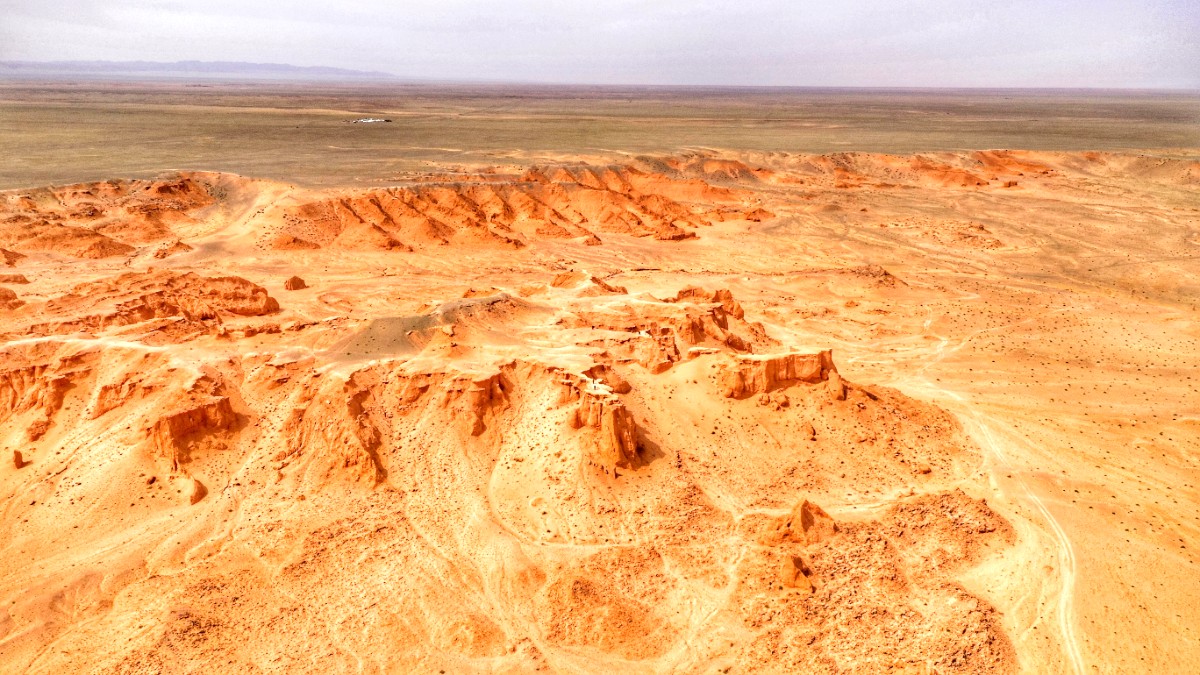
Mongolia
Your well-being is important during a Gobi trip. Plan ahead regarding health, safety, and emergency preparedness. Medical facilities in the Gobi are very basic, typically limited to small clinics or hospitals in provincial centers like Dalanzadgad. Serious medical emergencies mean evacuation to Ulaanbaatar, which has more modern hospitals, though they are still limited compared to Western standards.
The Gobi Desert is extremely sparsely populated, and crime rates are very low. The main risks relate to accidents, like vehicle breakdowns or getting lost, due to the remote and challenging environment. No specific "neighborhoods" exist in the Gobi to detail crime statistics for.
Local clinics in Gobi towns offer very basic services. Major medical attention requires Ulaanbaatar.
Dust storms (spring) reduce visibility. Dzud (severe winter) affects travel. Flash floods are rare but possible.
Carry a well-stocked first aid kit, as pharmacies are scarce in remote areas.
Dial 102
Dial 103
Dial 105
Contact your country's embassy in Ulaanbaatar.
For those combining travel with work, specialized insurance plans offer coverage tailored to your nomadic lifestyle.
Being prepared for unforeseen circumstances is a aspect of safe Gobi travel. This includes understanding potential risks and having contact information readily available.
Crime rates in the Gobi are very low due to its sparse population and traditional nomadic culture.
Safe for travelers.
Driving at night on Gobi's unpaved roads presents hazards due to poor visibility and animals. Daytime travel is highly advised.
Daytime travel better.
Respect wildlife and their habitats. Keep a safe distance from wild animals, especially rare species like the Gobi bear.
Observe from afar.
Travel respectfully and leave no trace to help preserve the Gobi's pristine environment and support its nomadic communities.
Water is a precious resource in the arid Gobi. Be mindful of your water use.
Minimize packaging and single-use items. Carry reusable bottles and bags.
In remote areas, bury human waste at least 6-8 inches deep and 200 feet from water sources, camps, and trails.
Mongolia has expanded its visa-free entry program, making travel easier for many nationalities. Check if you qualify.
The e-visa system may speed up entry for eligible visitors.
Rules can change. Always check official sources for the latest updates.
Mongolia welcomes travelers from many corners of the world with simplified entry.
Double-check all travel documents and requirements well in advance of your trip. Print copies and keep digital backups.
Embrace the unexpected in the Gobi; it is part of the adventure!